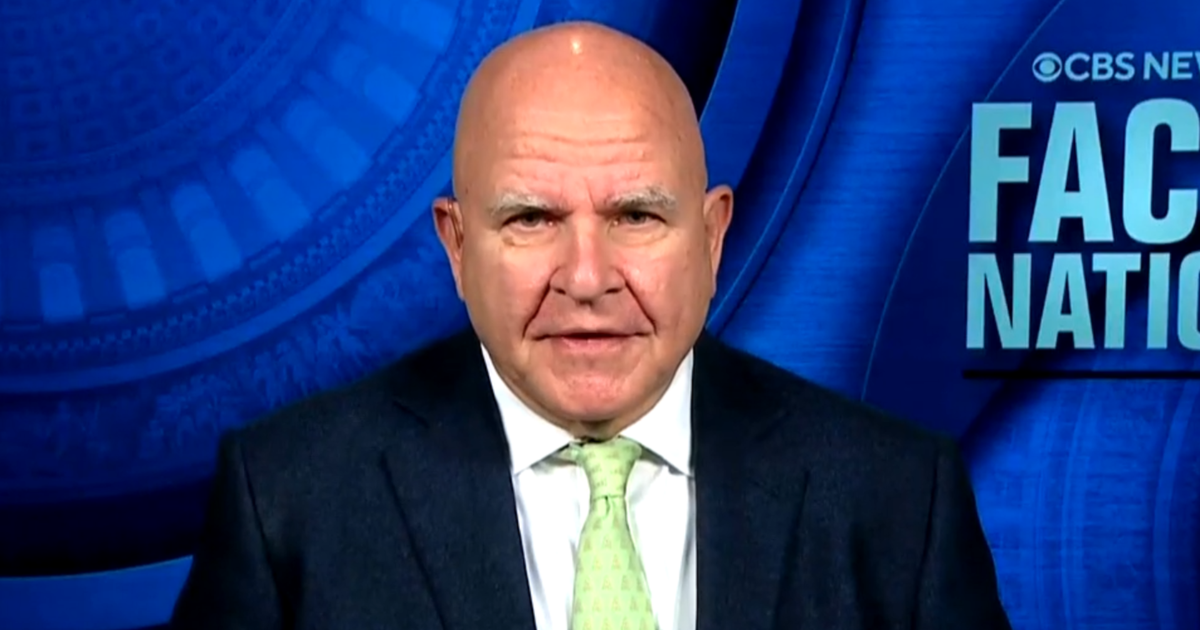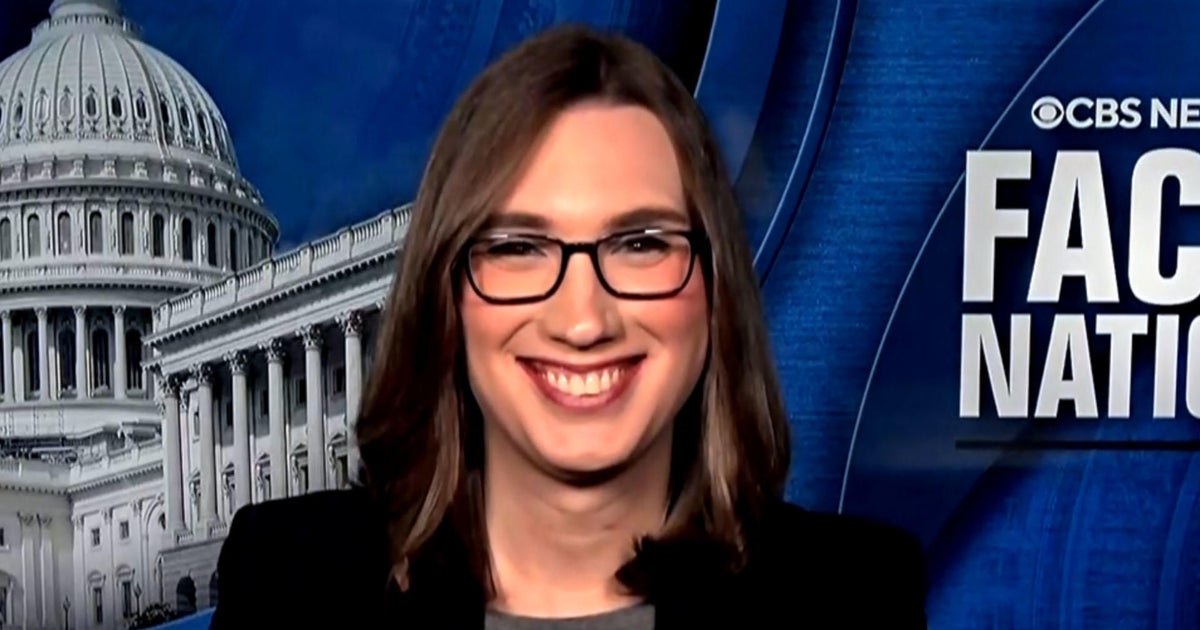CBS News
South Carolina death row inmate Freddie Owens executed by lethal injection

South Carolina put inmate Freddie Owens to death Friday as the state restarted executions after an unintended 13-year pause because prison officials couldn’t get the drugs needed for lethal injections.
Owens was convicted of the 1997 killing of a Greenville convenience store clerk during a robbery. While on trial, Owens killed an inmate at a county jail. His confession to that attack was read to two different juries and a judge who all sentenced him to death.
Owens, 46, was pronounced dead at 6:55 p.m.
When the curtain to the death chamber opened, Owens was strapped to a gurney, his arms stretched to his sides.
He mouthed a word to his lawyer, who smiled back. He appeared conscious for about a minute, then his eyes closed and he took several deeps breaths.
His breathing got more shallows and his face twitched for another four or five minutes before the movements stopped.
A medical professional came in and declared him dead about 13 minutes later.
Owens’ last-ditch appeals were repeatedly denied, including by a federal court Friday morning. Owens also petitioned for a stay of execution from the U.S. Supreme Court. South Carolina’s governor and corrections director swiftly filed a reply, stating the high court should reject Owens’ petition. The filing said nothing is exceptional about his case.
The high court denied the request shortly after the scheduled start time of the execution.
His last chance to avoid death was for Republican South Carolina Gov. Henry McMaster to commute his sentence to life in prison. McMaster denied Owens’ request as well, stating that he had “carefully reviewed and thoughtfully considered” Owens’ application for clemency.
McMaster said earlier that he would follow historical tradition and announce his decision minutes before the lethal injection begins, when prison officials call him and the state attorney general to make sure there is no reason to delay the execution. The former prosecutor had promised to review Owens’ clemency petition but has said he tends to trust prosecutors and juries.
Owens was convicted of killing Irene Graves in 1999. Prosecutors said he fired a shot into the head of the single mother of three who worked three jobs when she said she couldn’t open the store’s safe.
But hanging over his case is another killing: After his conviction, but before he was sentenced in Graves’ killing, Owens fatally attacked a fellow jail inmate, Christopher Lee.
Owens gave a detailed confession about how he stabbed Lee, burned his eyes, choked and stomped him, ending by saying he did it “because I was wrongly convicted of murder,” according to the written account of an investigator.
That confession was read to each jury and judge who went on to sentence Owens to death. Owens had two different death sentences overturned on appeal only to end up back on death row.
Owens was charged with murder in Lee’s death but was never tried. Prosecutors dropped the charges with the right to restore them in 2019 around the time Owens ran out of regular appeals.
Owens may be the first of several inmates to die in South Carolina’s death chamber at Broad River Correctional Institution. Five other inmates are out of appeals and the South Carolina Supreme Court has cleared the way to hold an execution every five weeks.
South Carolina first tried to add the firing squad to restart executions after its supply of lethal injection drugs expired and no company was willing to publicly sell them more. But the state had to pass a shield law keeping the drug supplier and much of the protocol for executions secret to be able to reopen the death chamber.
To carry out executions, the state switched from a three-drug method to a new protocol of using just the sedative pentobarbital. The new process is similar to how the federal government kills inmates, according to state prison officials.
South Carolina law allows condemned inmates to choose lethal injection, the new firing squad or the electric chair built in 1912. Owens allowed his lawyer to choose how he died, saying he felt if he made the choice he would be a party to his own death and his religious beliefs denounce suicide.
South Carolina’s last execution was in May 2011. It took a decade of wrangling in the Legislature — first adding the firing squad as a method and later passing a shield law — to get capital punishment restarted.
South Carolina has put 43 inmates to death since the death penalty was restarted in the U.S. in 1976. In the early 2000s, it was carrying out an average of three executions a year. Only nine states have put more inmates to death.
But since the unintentional execution pause, South Carolina’s death row population has dwindled. The state had 63 condemned inmates in early 2011. It had 32 when Friday started. About 20 inmates have been taken off death row and received different prison sentences after successful appeals. Others have died of natural causes.
In his final appeal, Owens’ lawyers said prosecutors never presented scientific evidence that Owens pulled the trigger when Graves was killed and the chief evidence against him was a co-defendant who pleaded guilty and testified that Owens was the killer.
Owens’ attorneys provided a sworn statement two days before the execution from Steven Golden saying Owens was not in the store, contradicting his trial testimony. Prosecutors said other friends of Owens and his former girlfriend testified that he bragged about killing the clerk.
Owens’ lawyers also said he was just 19 when the killing happened and that he had suffered brain damage from physical and sexual violence while in a juvenile prison.
CBS News
Former Trump national security adviser says next couple months are “really critical” for Ukraine

Washington — Lt. Gen. H.R. McMaster, a former national security adviser to Donald Trump, said Sunday that the upcoming months will be “really critical” in determining the “next phase” of the war in Ukraine as the president-elect is expected to work to force a negotiated settlement when he enters office.
McMaster, a CBS News contributor, said on “Face the Nation with Margaret Brennan” that Russia and Ukraine are both incentivized to make “as many gains on the battlefield as they can before the new Trump administration comes in” as the two countries seek leverage in negotiations.
With an eye toward strengthening Ukraine’s standing before President-elect Donald Trump returns to office in the new year, the Biden administration agreed in recent days to provide anti-personnel land mines for use, while lifting restrictions on Ukraine’s use of U.S.-made longer range missiles to strike within Russian territory. The moves come as Ukraine marked more than 1,000 days since Russia’s invasion in February 2022.
Meanwhile, many of Trump’s key selection for top posts in his administration — Rep. Mike Waltz for national security adviser and Sens. Marco Rubio for secretary of state and JD Vance for Vice President — haven’t been supportive of providing continued assistance to Ukraine, or have advocated for a negotiated end to the war.
CBS News
McMaster said the dynamic is “a real problem” and delivers a “psychological blow to the Ukrainians.”
“Ukrainians are struggling to generate the manpower that they need and to sustain their defensive efforts, and it’s important that they get the weapons they need and the training that they need, but also they have to have the confidence that they can prevail,” he said. “And any sort of messages that we might reduce our aid are quite damaging to them from a moral perspective.”
McMaster said he’s hopeful that Trump’s picks, and the president-elect himself, will “begin to see the quite obvious connections between the war in Ukraine and this axis of aggressors that are doing everything they can to tear down the existing international order.” He cited the North Korean soldiers fighting on European soil in the first major war in Europe since World War II, the efforts China is taking to “sustain Russia’s war-making machine,” and the drones and missiles Iran has provided as part of the broader picture.
“So I think what’s happened is so many people have taken such a myopic view of Ukraine, and they’ve misunderstood Putin’s intentions and how consequential the war is to our interests across the world,” McMaster said.
On Trump’s selections for top national security and defense posts, McMaster stressed the importance of the Senate’s advice and consent role in making sure “the best people are in those positions.”
McMaster outlined that based on his experience, Trump listens to advice and learns from those around him. And he argued that the nominees for director of national intelligence and defense secretary should be asked key questions like how they will “reconcile peace through strength,” and what they think “motivates, drives and constrains” Russian President Vladimir Putin.
Trump has tapped former Rep. Tulsi Gabbard to be director of national intelligence, who has been criticized for her views on Russia and other U.S. adversaries. McMaster said Sunday that Gabbard has a “fundamental misunderstanding” about what motivates Putin.
More broadly, McMaster said he “can’t understand” the Republicans who “tend to parrot Vladimir Putin’s talking points,” saying “they’ve got to disabuse themselves of this strange affection for Vladimir Putin.”
Meanwhile, when asked about Trump’s recent selection of Sebastian Gorka as senior director for counterterrorism and deputy assistant to the president, McMaster said he doesn’t think Gorka is a good person to advise the president-elect on national security. But he noted that “the president, others who are working with him, will probably determine that pretty quickly.”
CBS News
Sen. Van Hollen says Biden is “not fully complying with American law” on Israeli arms shipments

Watch CBS News
Be the first to know
Get browser notifications for breaking news, live events, and exclusive reporting.
CBS News
Rep.-elect Sarah McBride says “I didn’t run” for Congrees “to talk about what bathroom I use”

Watch CBS News
Be the first to know
Get browser notifications for breaking news, live events, and exclusive reporting.









